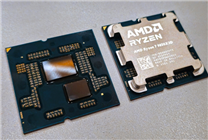### Summary:
– Apple is set to introduce its groundbreaking A20 series chips in two variants: the A20 and A20 Pro, both utilizing TSMC’s innovative 2nm process.
– The upcoming iPhone 18 series will debut in stages, with the Pro models expected to launch first in September 2027, followed by the standard models in early 2028.
– The A20 series features a significant redesign that integrates RAM directly onto the chip, enhancing performance and efficiency.
—
Apple is on the verge of a pivotal technological advancement with the announcement of its A20 series chips, featuring two distinct models: the standard A20 (codenamed Borneo) and the A20 Pro (codenamed Borneo Ultra). Utilizing TSMC’s cutting-edge 2nm process, these chips mark Apple’s inaugural entry into the 2nm mobile chip domain.
Historically, Apple has pursued a differentiated product strategy with its A-series chips. The standard iPhone typically houses a baseline chip, while the Pro model showcases an elevated version, offering enhanced performance. Continuously evolving, Apple’s approach is set to introduce a game-changing level of performance with its latest chip designs.
### Staged Launch for iPhone 18 Series
In an exciting development, the upcoming iPhone 18 series will debut in phases rather than a simultaneous launch of the standard and Pro models. Expected to hit the market in September 2027, the first wave will include the iPhone 18 Pro, iPhone 18 Pro Max, and potentially a folding-screen version. Additionally, the iPhone 18 Air may also make its appearance in this rollout. The regular iPhone 18 and the iPhone 18e are slated for release in the first half of 2028. Consequently, the A20 series chips may not launch in tandem with the iPhone lineup.
### Innovative Chip Design for Superior Performance
The A20 series promises a radical redesign that integrates RAM directly onto the same semiconductor wafer as the CPU, GPU, and neural network engine. This contrasts with traditional designs where RAM sits separately, linked via a silicon interposer. This innovative integration may significantly shrink chip size while enhancing operational efficiency.
Through this upgrade, Apple seeks not only to elevate chip performance but also to further streamline chip integration. The robust capabilities of the A20 chips are anticipated to deliver an exceptionally smooth user experience, particularly in multitasking and the execution of intelligent applications.
### Conclusion
The evolution of Apple’s A20 series signifies a major leap in mobile technology, setting the stage for more powerful and efficient devices. With the phased release strategy for the iPhone 18 series, Apple aims to maintain its competitive edge while providing consumers with cutting-edge technology.
As Apple unveils this transformative technology, the mobile landscape is bound to witness a new era of enhanced performance. The seamless integration and advanced features of the A20 series chips highlight Apple’s commitment to innovation and excellence in the smartphone industry.









